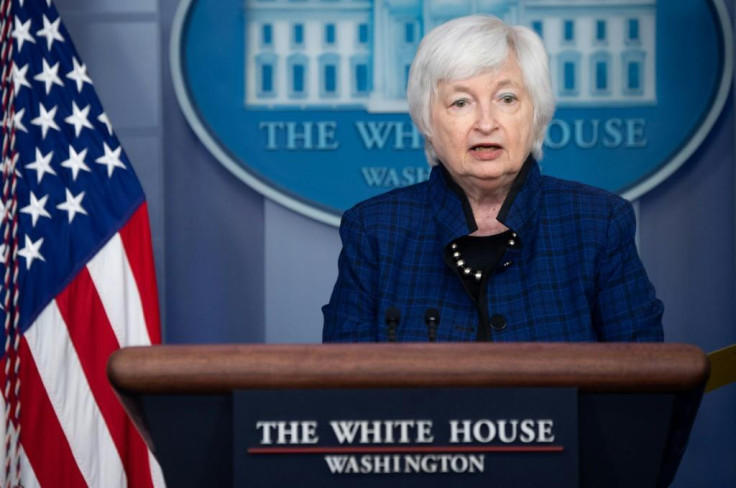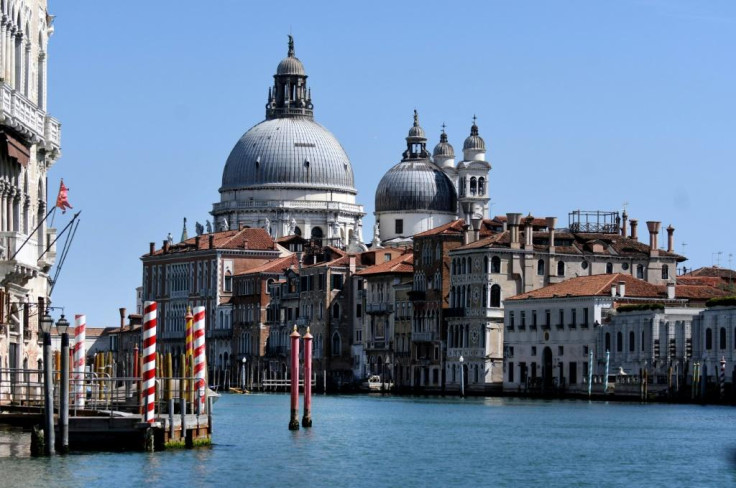Global tax reform plan goes to the G20
The EU plans to announce its own digital tax later this month to help finance its 750-billion-euro post-virus recovery plan.
G20 finance ministers meeting in Venice on Friday and Saturday could rally the world's top economies behind a global plan to tax multinationals more fairly that has already been hashed out among 131 countries representing 90 percent of world output.
On the face of it, the Group of 20 -- the world's 19 biggest economies plus the European Union -- have already backed the framework for global tax reform agreed on July 1 among members of the Organisation for Economic Cooperation and Development (OECD) alongside China and India.
But negotiations continue behind the scenes to convince low-tax EU countries such as Estonia, Hungary and Ireland, who declined to sign up to the OECD deal to tax global companies at a rate of at least 15 percent.
Italian Finance Minister Daniele Franco, whose country holds the G20 presidency, said he is "confident" of reaching a "political agreement" in Venice that would "radically change the current international tax architecture".

"We will do our utmost to convince the European states to join this compromise," said French Finance Minister Bruno Le Maire.
The hold-out European countries have relied on low tax rates to attract multinationals and build their economies.
Ireland, the EU home to tech giants Facebook, Google and Apple, has a corporate tax rate of just 12.5 percent, while Hungary has one of 9.0 percent and Estonia almost only taxes dividend payments.

However, the support of these three countries is crucial for the EU, as the adoption of a minimum tax rate would require unanimous backing from member states.
The minimum rate is one of two pillars of global tax reform.
The other is less controversial -- a plan to tax companies where they make their profits rather than simply where they are headquartered.
It has in its sights digital giants such as Google, Amazon, Facebook and Apple, which have profited enormously during the pandemic but pay tax rates that are derisory when compared to their income.

When the new tax regime is in place -- the OECD is aiming for 2023 -- then national digital taxes imposed by countries such as France, Italy and Spain will disappear.
However, the EU plans to announce its own digital tax later this month to help finance its 750-billion-euro post-virus recovery plan.
Washington sees it as discriminating against US technology giants, and US officials have warned the proposal could "completely derail" the global tax negotiations.
Countries have for years been debating how to stop multinational companies taking advantage of different tax systems to limit the amount they pay.
Negotiations became bogged down during the US presidency of Donald Trump, but were revived with Joe Biden's arrival at the White House, and the G7 richest nations made a historic commitment on the issue in London last month.
But the reforms must be implemented by parliaments in different countries -- and Republicans in the US Congress, for one, are strongly opposed.
The proposed minimum tax rate of a least 15 percent, meanwhile, is not set in stone.
US Treasury Secretary Janet Yellen is expected to press her counterparts in Venice to negotiate a higher rate, senior US officials said, although it will likely not be set until the run-up to the G20 leaders' summit in October in Rome.
It will depend in part on the outcome of negotiations in the US Congress on the tax rate on US companies' overseas profits, which Biden's administration wants to raise from 10.5 percent to 21 percent.
The G20 discussions, which include finance ministers and central bank chiefs, will also focus on post-pandemic global recovery, inflationary risks, climate change and aid to poor countries.
International Monetary Fund chief Kristalina Georgieva on Wednesday called on the G20 to do more to help the poorest countries withstand the "devastating double-blow" of the pandemic and the resulting economic damage.
Warning of a "deepening divergence" between rich and poor, she called on the G20 to take urgent steps to keep developing nations from falling further behind in vaccine access and funding to repair their fortunes.
Copyright AFP. All rights reserved.
This article is copyrighted by International Business Times, the business news leader





















